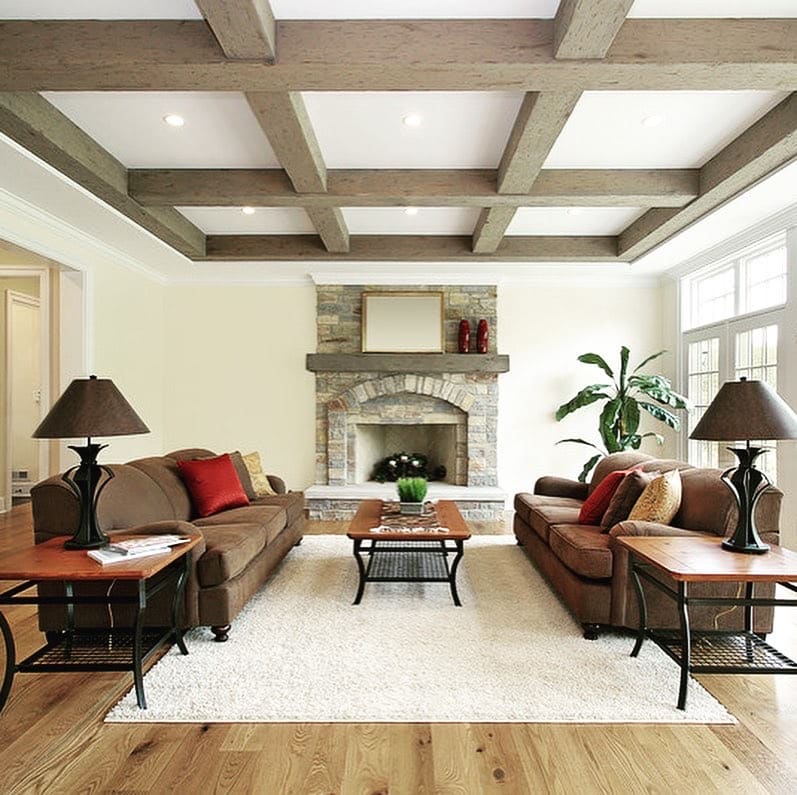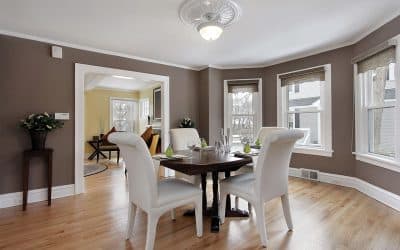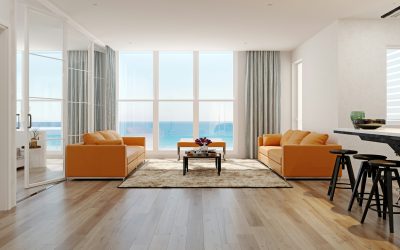When it comes to choosing flooring for your home, durability is a key factor that influences your decision. Hardwood and vinyl floors are two popular options, each with their own advantages and considerations. In this guide, we’ll compare the durability of hardwood and vinyl flooring to help you determine which is best for your lifestyle and aesthetic preferences.
Hardwood Floors: Timeless Elegance and Longevity
Durability and Longevity
Hardwood flooring is renowned for its classic beauty and long-lasting appeal. Made from solid wood or engineered wood, hardwood floors can last decades with proper care. They’re resistant to wear and can be sanded and refinished multiple times, allowing you to restore their appearance over the years.
Resilience to Traffic and Wear
While hardwood is generally durable, its resilience depends on the species of wood. Harder woods like oak, maple, or hickory are better suited for high-traffic areas. However, hardwood floors can be susceptible to scratches, dents, and moisture damage if not maintained properly.
Maintenance Tips
- Use rugs and furniture pads to prevent scratches.
- Clean regularly with a damp mop and gentle cleaners.
- Avoid excessive moisture, which can cause warping.
Vinyl Floors: Versatile, Waterproof, and Highly Durable
Durability and Resistance
Vinyl flooring has surged in popularity due to its excellent durability and water resistance. It’s an ideal choice for kitchens, bathrooms, and basements. Modern luxury vinyl planks and tiles are designed to withstand heavy foot traffic, dents, and scratches, making them highly resilient.
Wear and Tear
Vinyl floors are resistant to moisture, stains, and fading, maintaining their appearance over time. They’re also more forgiving when it comes to impacts, making them suitable for households with kids or pets.
Maintenance Tips
- Sweep or vacuum regularly to remove debris.
- Use mild cleansers and avoid abrasive scrubbers.
- Protect with felt pads under furniture.
Comparing Durability: Hardwood vs. Vinyl
| Feature | Hardwood Floors | Vinyl Floors |
|---|---|---|
| Resistance to Scratches | Moderate; susceptible to scratches from pets and furniture | High; scratch-resistant surface |
| Water Resistance | Poor; vulnerable to moisture damage | Excellent; waterproof surface |
| Impact Resistance | Moderate; dents and dents possible | High; absorbs impacts without damage |
| Longevity | 20-100 years with maintenance | 10-30 years with proper care |
Which Flooring Is More Durable?
- For High-Moisture Areas: Vinyl flooring wins due to its waterproof properties.
- For High-Traffic Zones: Both options are durable, but vinyl offers an edge in resisting scratches and impacts.
- For Long-Term Investment: Hardwood floors, with proper care, can last a lifetime and can be refinished multiple times.
Final Thoughts
Choosing between hardwood and vinyl flooring depends on your specific needs, lifestyle, and aesthetic preferences. Hardwood offers unmatched elegance and can last for generations, but it requires careful maintenance to prevent damage. Vinyl provides exceptional durability, water resistance, and low maintenance, making it suitable for active households and moisture-prone areas.
Optimize Your Home’s Durability
Assess your priorities—style, traffic levels, moisture exposure—and select the flooring that best suits your lifestyle. Both hardwood and vinyl floors can enhance your home’s beauty while providing the durability you need for everyday life.
Looking for expert advice? Contact our flooring specialists today to explore the best options tailored to your home!





0 Comments